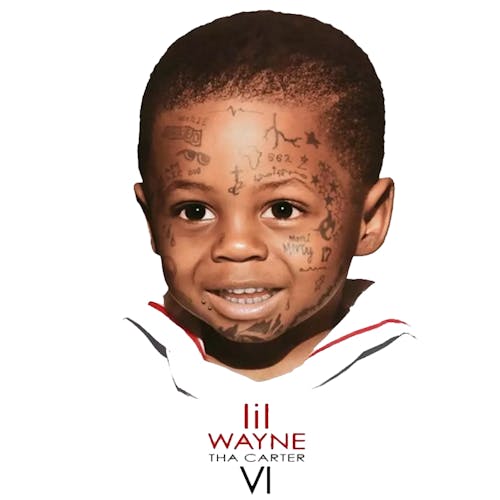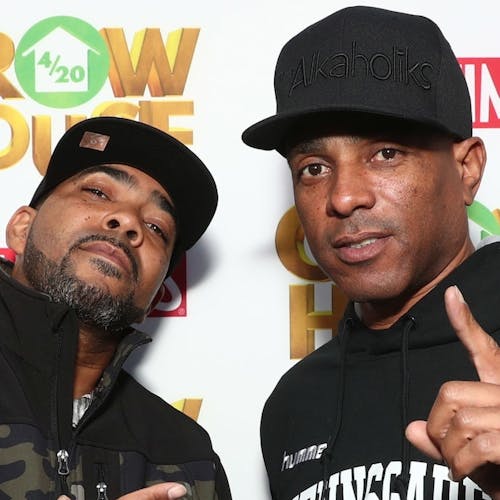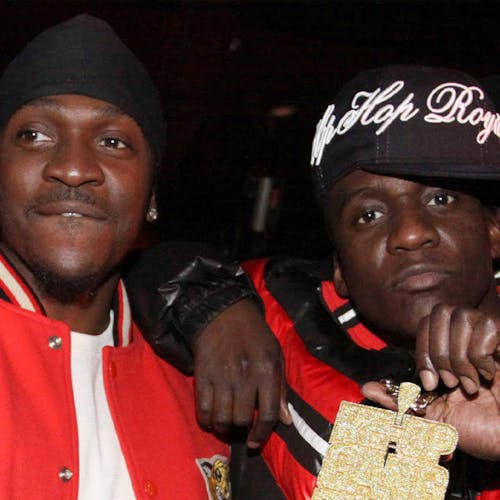
Classic Albums: 'Soul Food' by Goodie Mob
Classic Albums: 'Soul Food' by Goodie Mob
Published Thu, November 19, 2020 at 9:30 AM EST
In late 1994, Atlanta was on the cusp of a moment.
The Georgia Dome was a shiny new fixture to the skyline, a new home for the Falcons; and the Braves were about to start a historic NL East run. Freaknik, the city's most controversial cultural event, was hitting its peak; and the Olympics were on the horizon for 1996. Big changes were happening.
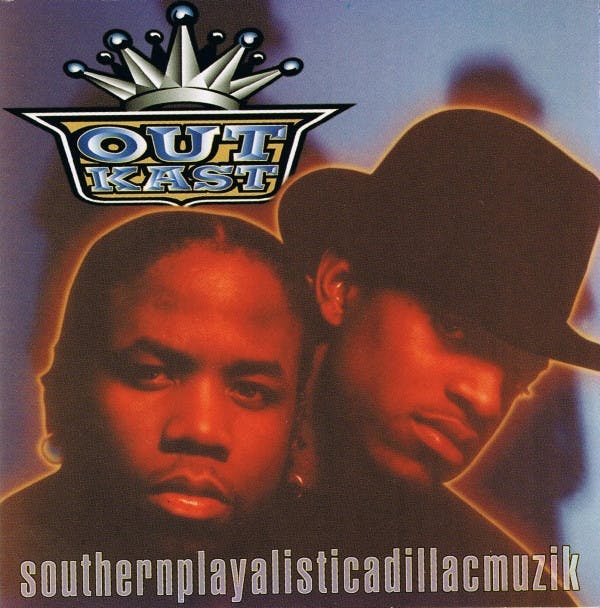
And in Hip-Hop, Atlanta's own OutKast was riding high on the success of their platinum-selling debut album southernplayalisticadillacmuzik. The teenage duo of Andre and Big Boi had announced the emergence of ATL's Dungeon Family—a collective of emcees, producers, singers and musicians who'd come together at Rico Wade's southwest Atlanta basement studio aka "The Dungeon." With OutKast's success, LaFace Records was eager for what the Dungeon Family would do next.
"I didn't feel any pressure nor any competition [with OutKast]," explains Cee-Lo. "One thing that we would go on to prove is that [the Dungeon Family] was probably the most unique and diverse collective of artists and individuals that I've ever seen assembled."
The emcees who would come together to form Goodie Mob were all already primed for a breakthrough. The original incarnation of Goodie Mob was friends T-Mo and Khujo; Big Gipp was a D.F. affiliate since the early days; and OutKast's young friend Cee-Lo Green was waiting in the wings.
"Once we brought Cee-Lo to the Dungeon, that's when we started formulating and doing things together," Gipp explains. "We all put in, to make sure OutKast's first album was the jam."
Everything the artists did was collaborative. And with LaFace pushing for something to follow OutKast, an idea suddenly surfaced.
"[Industry exec] Ian Burke said 'why don’t y’all all come together as a four-man group under the umbrella of Goodie Mob? After that, y’all can break into your separate entities and go forward like that,'" T-Mo recalls.
"Everybody had different skill sets and was unique and original in their own right," Cee-Lo says. "And that's why we were able to cover so much ground, from one end to the other."
"It was just us trying to find our spot," Khujo says of those days. "Because the South had already been claimed. But what is Atlanta gonna do? Is Atlanta gonna just be a bunch of strip club music? Or are there people in Atlanta that have some type of knowledge of self, and can relay some type of message and still be entertaining."
DROP YOUR EMAIL
TO STAY IN THE KNOW
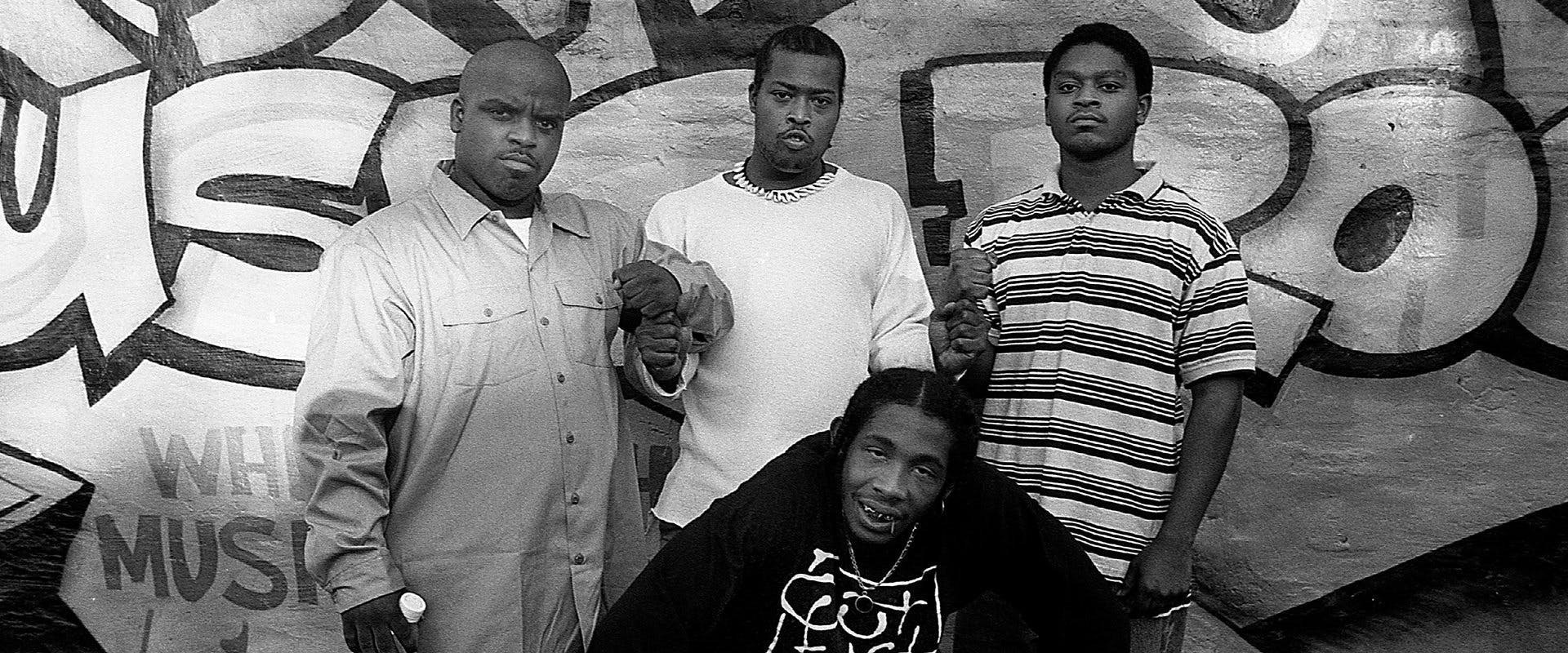
Once it was decided that T-Mo, Khujo, Gipp and Cee-Lo would form a quartet, they set to work on Goodie Mob's debut album. southernplayalistic... set a bar, and they were determined to continue that standard. The world was paying attention to Atlanta now.
"'southernplayalistic...' spearheaded everything," T-Mo shares. "With the Olympics coming, the Braves were hot, the city was hot—it felt great, being from Atlanta."
And Organized Noize was on a hot streak as producers. Not only had OutKast's debut been a hit, the production team also helmed tracks on TLC's diamond-selling 1994 album CrazySexyCool, including that group's No. 1 smash "Waterfalls." As they set to work on Goodie Mob's debut, their soulful backdrop gave the four emcees a vivid canvas on which to paint stories about the streets, social consciousness and life in their hometown.
As the crew crafted their debut, Goodie Mob got the opportunity to record in a hallowed space. Soul legend Curtis Mayfield had a studio right there in the city.
The Dungeon Family set up shop in Mayfield's digs and got to work; absorbing the ambience as they crafted their own soon-to-be classic album.
"All those years I lived in Southwest Atlanta, I had no idea that Curtis Mayfield lived one block over from my girlfriend's daddy," says T-Mo. "We rented his house, it was a beautiful studio, private—but right there in the community."
"Everybody used to live at that house. We stayed at the house every night," T-Mo shares. "It was so beautiful for us to have that moment, to be in there and absorb that atmosphere. The positive musical energy that he generated in that studio...it was beautiful."
The backdrop of Mayfield's home studio inspired the music that was being made, but Goodie Mob was also inspired by things that were happening in popular culture. And no story was bigger in 1994 and 1995 than the O.J. Simpson trial. T-Mo famously dissed the prosecuting attorneys in the case in his verse on the title track.
"I can remember we was sitting there watching him run from the police in the white Bronco and that's where my lyrics came from!" T-Mo remembers, laughing now. "'Fuck Chris Darden, fuck Marcia Clark!' I just got mad, man."
"We were comfortable in our skin, but we were adamant about the opportunity," Cee-Lo says. "There was a high regard for accountability. And being each other's accountability partners. It was very important that we represented the region respectfully."
Hip-Hop has always been about representing your culture and community, and Goodie Mob set about writing songs that talked about the ATL. References to Mo-Joe Chicken Wings and Mays High School peppered their lyrics, they educated listeners about the Red Dog police department and taking you down trips on Campbellton Road.
And even as Organized Noize and the Dungeon Family were charting new territory in the music industry, they remained dedicated to the streets that made them. They recorded one of their most down-home odes to SWATS in the same space where a mega-hit for their LaFace labelmates TLC was crafted.
"We recorded 'Soul Food' the day after they recorded 'Waterfalls,'" T-Mo remembers. "In the same studio."
That August, The Dungeon Family was on-hand in New York City at Madison Square Garden for the Source Awards.
As has been well-documented, it was the height of East/West tensions in Hip-Hop and the New York crowd was hostile. When a visibly unimpressed Salt-N-Pepa announced OutKast as the winners of Best New Artist over NYC acts like Brooklyn's Smif-N-Wessun, the boos were audible. Andre's infamous declaration that "The South got something to say" was prophetic in both the long-term and the short-term: Goodie Mob's first album would hit the streets in the fall. Southern Hip-Hop wasn't going anywhere.
"I felt like we were activists, lobbying for the rights of southern Hip-Hop." Cee-Lo explains. "We were fighting for equality, for inclusion. [But] I never had that civil war with New York. It's still all relative, geographically. You'll use those benchmarks as a reference. Who wouldn't want to reference Rakim, KRS-One or Run-D.M.C.? We all thrived in extension of the mainframe. But we did realize that there was maybe a lack of reciprocation. Because there was a lack of representation."
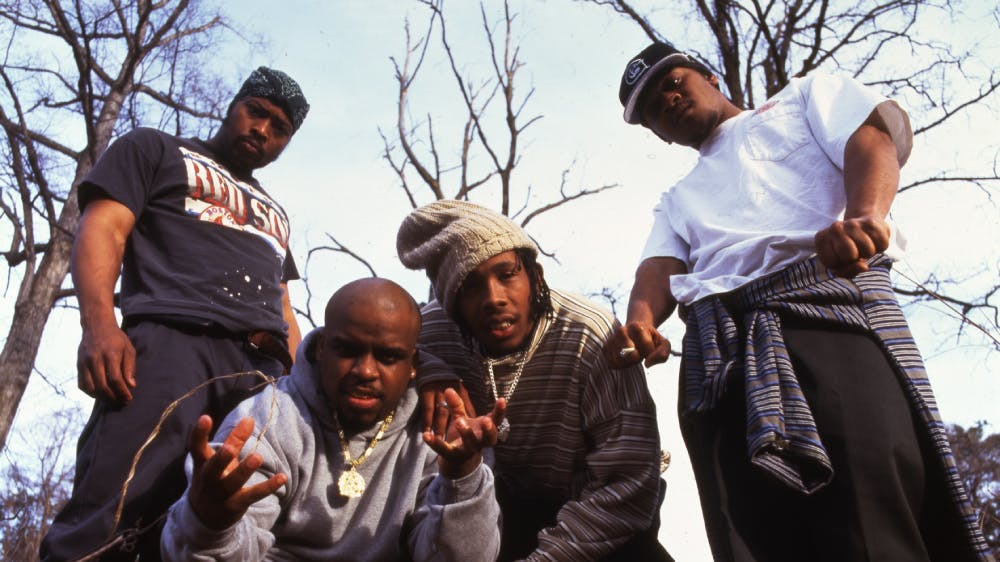
Goodie Mob: Soul Food hit stores in November of 1995. The album's mix of street wisdom and spirituality, buoyed by Organized Noize sonic backdrop that tapped into Hip-Hop, soul and gospel music, was critically-acclaimed in music circles and singles like "Cell Therapy" and "Dirty South" made Goodie Mob a fixture on MTV and BET. Other tracks, like Thought Process,” “I Didn’t Ask to Come,” “Guess Who,” “Sesame Street,” “Serenity Prayer,” “Live at the O.M.N.I,” “Goodie Bag,” and “The Coming” (featuring Witchdoctor) included in the hip-hop album have also become cult-classics.The dismissal of the South in Hip-Hop was starting to look tone-deaf and ignorant, as the Dungeon Family set a new standard for emceeing, production and musicality.
"We was feeding off of people like Cypress Hill, Naughty By Nature, what E-40 and B-Legit was doing [in] the Bay," Khujo remembers of their early influences. "We'd been in a learning state. When LaFace came in [as] a major record label, we were able to be broadcast all over the world."
And they used that spotlight to showcase their city. The legacy of Soul Food is part of the fabric of Atlanta. After 1995, nothing would be the same. The '96 Olympics brought new eyes—and big dollars—to "The City Too Busy To Hate," as redevelopment and gentrification forever altered communities and culture. But the sparkly Atlanta image of today wouldn't have happened without some ambitious rhymers from S.W.A.T.S. twenty five years ago. Atlanta went from musical outsider to the head of the table. In 2020, the whole music industry flows through "the A."
"They moving the Grammy Museum to Atlanta – what does that tell you?" Gipp says with a grin. "The war is over..."
"We won."
